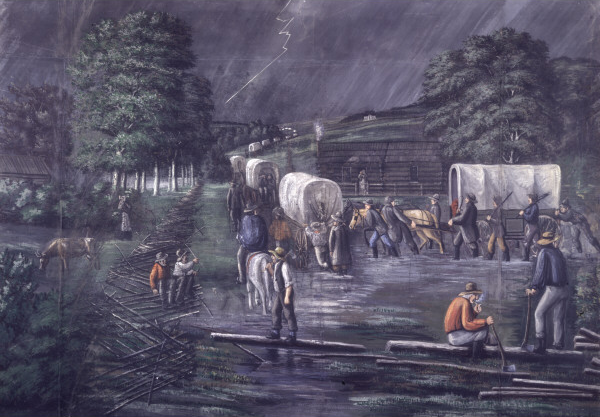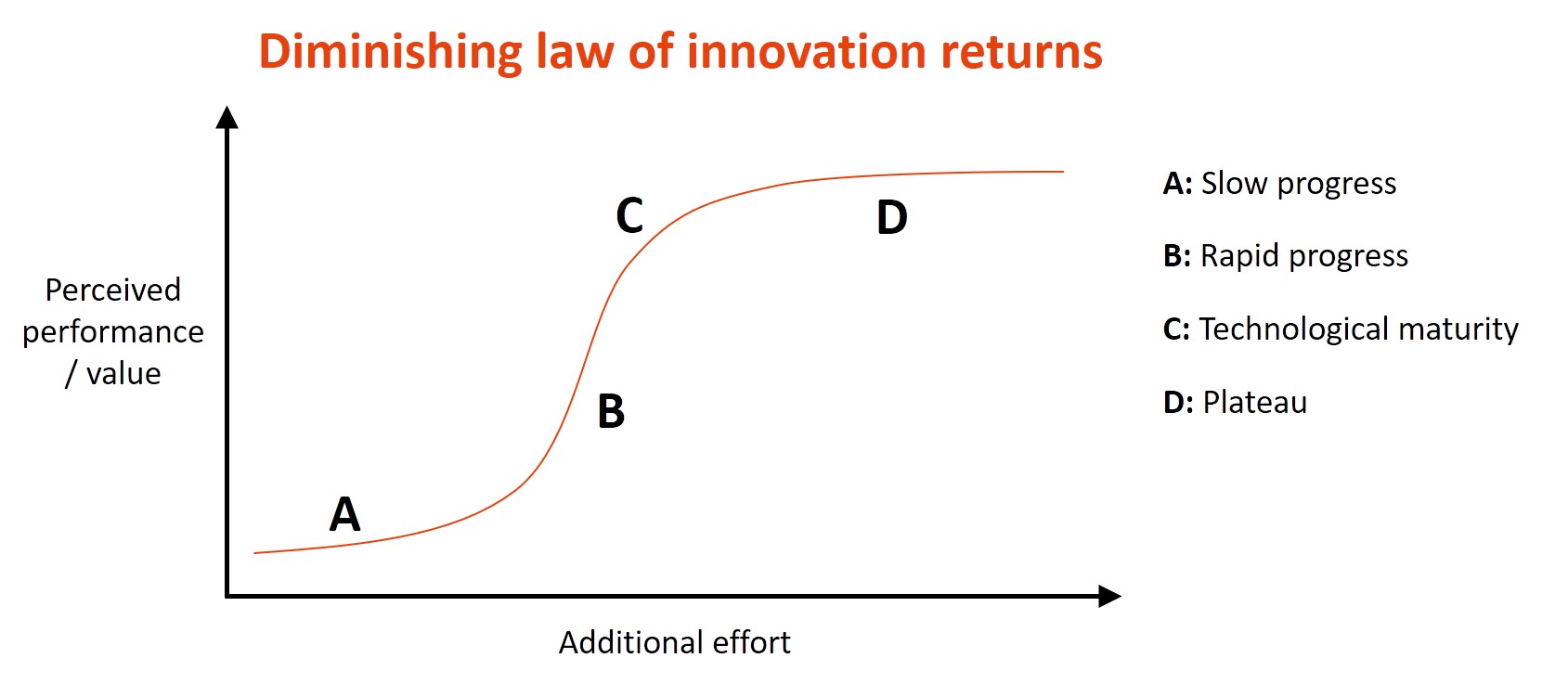I have been pouring over the Book of Job for the last couple of weeks, trying to gather a train of thought on the direction for the gospel doctrine lesson to be given over a week from now. I had taken many notes and my mind felt scattered in a variety of different directions.
Weekends provide an opportunity for me to commit more time to focus on study, so on Saturday I found myself praying for clarity on what message the class most needed to learn from Job.
After my prayer, I sat down and in only a few minutes I was given the direction for the lesson and where the main focus needed to be. This was a completely different trajectory from where I had previously been centering my attention.
The next day (Sunday), before having the opportunity to give the lesson the following week, I was released from my calling as Gospel Doctrine teacher.
Perhaps the lesson I prepared was more for me than the class. Nevertheless, I have decided to post it here in the event these insights may benefit others as well.
I identified with this comment from a co-worker when I mentioned to him I had been studying the Book of Job. He said, “Anyone who complains about how hard it is to understand Isaiah, hasn’t read Job.”
Job is the oldest book in the Bible. By some estimates it dates “to a period of time between 1900 and 1700 B.C.“
Job is classified/categorized as belonging to the genre of wisdom literature or poetic books of the Bible.
_(14761939436).jpg)
Despair, Doubt, and Trust
From the lesson material we read:
While Job had times when he struggled with doubt and despair, ultimately his trust in the Lord sustained him in his suffering.
Despair, yes. But did Job doubt?
Job 19:25-26
For I know that my redeemer liveth, and that he shall stand at the latter day upon the earth: And though after my skin worms destroy this body, yet in my flesh shall I see God:
Does this sound like the words of someone who doubts? Take a look at Job 13:15
Though he slay me, yet will I trust in him: but I will maintain mine own ways before him.
We are told that it was Job’s “trust in the Lord” that “sustained him in his suffering.” Is it trust alone that we can give us assurance to sustain us in our own suffering? What is meant by “trust”?
In response to this question, let’s take a look at Lectures on Faith, Lecture 6. I’m going to read paragraphs 1 through 8. Remember, this is the curriculum used in the School of the Prophets in Kirtland, Ohio. I refer to this material because of how eloquently it addresses the question of how Job’s trust in the Lord “sustained him in his suffering.”
Having treated, in the preceding lectures, of the ideas of the character, perfections, and attributes of God, we next proceed to treat of the knowledge which persons must have that the course of life which they pursue is according to the will of God, in order that they may be enabled to exercise faith in him unto life and salvation.
This knowledge supplies an important place in revealed religion, for it was by reason of it that the ancients were enabled to endure as seeing him who is invisible. An actual knowledge to any person that the course of life which he pursues is according to the will of God is essentially necessary to enable him to have that confidence in God, without which no person can obtain eternal life. It was this that enabled the ancient saints to endure all their afflictions and persecutions and to take joyfully the spoiling of their goods, knowing (not believing merely) that they had a more enduring substance. Hebrews 10:34.
Having the assurance that they were pursuing a course which was agreeable to the will of God, they were enabled to take not only the spoiling of their goods and the wasting of their substance joyfully, but also to suffer death in its most horrid forms, knowing (not merely believing) that when this earthly house of their tabernacle was dissolved, they had a building of God, a house not made with hands, eternal in the Heavens. 2 Corinthians 5:1.
Such was and always will be the situation of the saints of God: that unless they have an actual knowledge that the course that they are pursuing is according to the will of God, they will grow weary in their minds and faint, … nothing short of an actual knowledge of their being the favorites of Heaven, and of their having embraced that order of things which God has established for the redemption of man, will enable them to exercise that confidence in him necessary for them to overcome the world and obtain that crown of glory which is laid up for them that fear God.
For a man to lay down his all, his character and reputation, his honor and applause, his good name among men, his houses, his lands, his brothers and sisters, his wife and children, and even his own life also, counting all things but filth and dross [worthless slag] for the excellency of the knowledge of Jesus Christ, requires more than mere belief, or supposition that he is doing the will of God, but actual knowledge, realizing that when these sufferings are ended he will enter into Eternal rest and be a partaker of the glory of God.
For unless a person does know that he is walking according to the will of God, it would be offering an insult to the dignity of the Creator were he to say that he would be a partaker of his glory when he should be done with the things of this life. But when he has this knowledge, and most assuredly knows that he is doing the will of God, his confidence can be equally strong that he will be a partaker of the glory of God.
Let us here observe that a religion that does not require the sacrifice of all things never has power sufficient to produce the faith necessary unto life and salvation. For from the first existence of man, the faith necessary unto the enjoyment of life and salvation never could be obtained without the sacrifice of all earthly things: it was through this sacrifice, and this only, that God has ordained that men should enjoy eternal life, and it is through the medium of the sacrifice of all earthly things that men do actually know that they are doing the things that are well pleasing in the sight of God. When a man has offered in sacrifice all that he has for the truth’s sake, not even withholding his life, and believing before God that he has been called to make this sacrifice because he seeks to do his will, he does know most assuredly that God does and will accept his sacrifice and offering, and that he has not nor will not seek his face in vain…
But now I ask, what is vain? Continuing…
It is in vain for persons to fancy to themselves that they are heirs with those, or can be heirs with them, who have offered their all in sacrifice, and by this means obtained faith in God and favor with him so as to obtain eternal life, unless they in like manner offer unto him the same sacrifice, and through that offering obtain the knowledge that they are accepted of him.
A More Excellent Hope
As it relates to trust, and being sustained by the Lord in suffering, let’s turn out attention to Job 8:11-14
Can the rush grow up without mire? can the flag [reeds] grow without water? Whilst it is yet in his greenness, and not cut down, it withereth before any other herb. So are the paths of all that forget God; and the hypocrite’s hope shall perish: Whose hope shall be cut off, and whose trust shall be a spider’s web.
Bildad’s words here indicate how empty and void is hope for the unrighteous. Continuing on the theme of hope, Zophar elaborates:
Job 11:15,18
For then shalt thou lift up thy face without spot; yea, thou shalt be steadfast, and shalt not fear: … And thou shalt be secure, because there is hope; yea, thou shalt dig about thee, and thou shalt take thy rest in safety.
In the Book of Mormon we are given a key to the significance of what is meant by “hope“.
Ether 12:32
And I also remember that thou hast said that thou hast prepared a house for man, yea, even among the mansions of thy Father, in which man might have a more excellent hope; wherefore man must hope, or he cannot receive an inheritance in the place which thou hast prepared.
This verse includes this wonderful phrase on hope: “man must hope, or he cannot receive.” What a delightful link between something within us, to something without. It is a link between our future inheritance, and a present expectation. It is a link between looking forward now, to a reality to come. We see the wonderful intangibility of a present-day thought linked to what is to become concrete in the future.
“Hope,” particularly as it is used here, is not well understood. We sometimes view it as a weak virtue; something of a wisp, a phantom. But in this context, it is much more. It is a concrete assurance, based upon a promise or covenant.
“Hope” comes from knowing the Lord has promised a person something. As the Lord has assured us, He does not make and then break promises. When He promises something, He will deliver it. As He has said in D&C 1:38: “What I the Lord have spoken, I have spoken, and I excuse not myself; and though the heavens and the earth pass away, my word shall not pass away, but shall all be fulfilled.” Anyone who receives a promise from Him has an absolute certainty. However, the promises of the Lord are invariably about the future, even if the immediate future. To Abraham, the promise of a son (Gen 18:10) preceded Isaac’s birth by many years (Gen 21:1-2). To Joseph the promise of his brothers and father bowing to him (Gen 37:5-11) was given in a dream many years before he was actually sitting in power in Egypt (Gen 45:7-10). From the time of the promise to Moses that Israel would be delivered by his hand (Exo 8:10), to the time Israel was delivered out of Egypt (Exo 12:31), there were many months, trials, confrontations and difficulties. Between the promise given, and the realization of the promise, there was only “hope.” It was “hope” linked to faith, but hope, nonetheless. This is the kind of “hope” spoken of here. It is not a vague notion, or whimsical possibility. It was trust and confidence springing from a promise given to a person by God. It is something far greater, more profound, more strongly felt, more firmly based than just expectancy from vague desire.
Promise of Eternal Life
In a letter to his uncle, Silas Smith, written in Kirtland Mills, Ohio, 26 September 1833, Joseph Smith writes:
I admit that by reading the scriptures, of truth, the saints in the days of Paul could learn, beyond the power of contradiction, that Abraham, Isaac, and Jacob had the promise of eternal life confirmed to them by an oath of the Lord; but that promise or oath was no assurance to them of their salvation, but they could, by walking in the footsteps and continuing in the faith of their fathers, obtain for themselves an oath for confirmation that they were meet to be partakers of the inheritance with the saints in light.
If the saints in the days of the apostles were privileged to take the ancients for examples, and lay hold of the same promises, and attain to the same exalted privilege of knowing that their names were written in the Lamb’s Book of Life and that they were sealed there as a perpetual memorial before the face of the Most High, will not the same faithfulness, the same purity of heart and the same faith bring the same assurance of eternal life, and that in the same manner, to the children of men now in this age of the world?
I have no doubt but that the holy prophets and apostles and saints in ancient days were saved in the kingdom of God; neither do I doubt but that they held converse and communion with him while they were in the flesh, as Paul said to his Corinthian brethren that the Lord Jesus showed himself to above five hundred saints at one time after his resurrection. Job said that he knew that his Redeemer lived and that he should see him in the flesh in the latter days. I may believe that Enoch walked with God and by faith was translated. I may believe that Noah was a perfect man in his generation and also walked with God. I may believe that Abraham communed with God and conversed with angels. I may believe that Isaac obtained a renewal of the covenant made to Abraham by the direct voice of the Lord. I may believe that Jacob conversed with holy angels, and heard the voice of his Maker, that he wrestled with the angel until he prevailed and obtained the blessing. I may believe that Elijah was taken to Heaven in a chariot of fire with fiery horses. I may believe that the saints saw the Lord and conversed with him face to face after his resurrection. I may believe that the Hebrew church came to Mount Zion, and unto the city of the living God, the Heavenly Jerusalem, and to an innumerable company of angels. I may believe that they looked into eternity and saw the Judge of all, and Jesus the Mediator of the new covenant. But will all this purchase an assurance for me, and waft me to the regions of eternal day, and seat me down in the presence of the King of kings with my garments spotless, pure, and white?
Or must I not rather obtain for myself, by my own faith and diligence in keeping the commandments of the Lord, an assurance of salvation for myself? And have I not an equal privilege with the ancient saints? And will not the Lord hear my prayers and listen to my cries as soon as he ever did to theirs, if I come to him in the manner they did? Or, is he a respecter of persons?
In Conclusion – The Horse
The problem we must overcome to obtain salvation is our profound ignorance. And what the gospel offers defies ignorance, subdues it, challenges it, destroys it, and leaves it in the dark. So let’s try and search into, and obtain some illumination.
I want to read a passage from Job and misapply it, if you will. I want you to imagine that what I am reading is not merely a description of a mortal horse. What I am reading is a description of those horses which pull the chariot upon which Elijah ascended to heaven. This is the horse you need to ride in your quest for heaven. This is the way you to are to mount up:
Job 39:19-25
Hast thou given the horse strength? hast thou clothed his neck with thunder? Canst thou make him afraid as a grasshopper? the glory of his nostrils is terrible. He paweth in the valley, and rejoiceth in his strength: he goeth on to meet the armed men. He mocketh at fear, and is not affrighted; neither turneth he back from the sword. The quiver rattleth against him, the glittering spear and the shield. He swalloweth the ground with fierceness and rage: neither believeth he that it is the sound of the trumpet. He saith among the trumpets, Ha, ha; and he smelleth the battle afar off, the thunder of the captains, and the shouting.
As the battle engages, ride the horse. Not away, but toward the sound.



